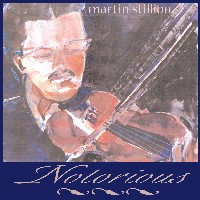Ten Things I Hate About Voice Mail
2. That
3. Cut
4. You
5. Off
6. When
7. You
8. Pause
9. Between
10. Words.
Today I tried to call back a reporter at a small weekly community newspaper as part of my media-relations duties. (I won't name names.) I got her voice mail and attempted to leave the information she wanted.
Only to be rudely interrupted the first time I took a breath. "You paused while speaking," lectured the voice-mail computer. Yeah, for half a second at most. See, I try to speak in complete sentences and think about what I say, which makes me talk slower than some people. But the voice-mail didn't care. It fired a bunch of options at me so fast that I couldn't catch what they were and didn't know which key to press. I thought, "Is that how I'm expected to talk on this message? Like John Moschitta on twelve cups of Folger's?" The computer repeated the options, and I chose to try to continue recording my message. I pepped up my delivery as much as possible, but darn it, a fellow has to inhale once in a while—and as soon as I did, I got the same lecture followed by a third iteration of the options.
I pictured the recording session for this voice-mail system. The voice actor, a nervous-looking woman in her early 50s, dressed conservatively but not carefully, sits behind the microphone in the isolation booth. Her taut and drawn face is dwarfed by an enormous pair of studio headphones. There's a stain on her blouse from the afternoon's moo-shu pork. She drums her fingers impatiently. What she really wants is a cigarette, but the engineer won't let her smoke around his equipment. The producer punches in and says, "That was pretty close, Nancy, but can you try to sound just a touch more ... exasperated?"
Other voice-mail actors sound matronly and reassuring (I recall hearing one of them interviewed on the radio once). Nancy sounded like she'd just come off a front-desk shift at the Department of Motor Vehicles.
This time I chose the option to hear what I had recorded so far—and discovered that not only was the system cutting me off, it was partially rewinding my message between segments. So it had chopped off the end of the first segment before recording the second, hopelessly garbling my words in the process. Defeated, I erased the message and left a new one, just giving my name and phone number and asking the reporter to call me back.
Which she did, and she seemed both sympathetic ("Yeah, several people have had that problem") and a wee bit defensive ("Do you know how long it took us to get voice mail set up at all?").
File this as one more example of how technological advances actually make life less convenient. Back in the day of the analog answering machine, you could talk as long as you wanted on your message, at least until the tape ran out. And the machine's owner was in complete control: if you received a message and wanted to keep it, you simply set the tape aside and put in a new one. Voice mail is supposed to be an improvement, but it's not. The storage issue hasn't been solved—how many times have you heard the phrase "This mailbox is full"? There might be a way to save a message permanently, but I don't know what it is .... and anyway, it probably entails an advanced degree in electrical engineering. A few years ago I played in a band called Cabin Fever. Our best-ever rendition of our song "Dirty Socks" was one we left on someone's voice mail—but do any of us have a copy of it now? No, we don't. (Singing on voice mail can create other problems: on a tone-dial line, certain notes can terminate your message early.)
And finally, there's Nancy and her annoying habit of interrupting me when I pause. Perhaps it's an attempt to solve storage issues: messages with no pauses don't occupy as much time or memory. But in my case, it defeated the purpose of leaving a message at all—other than the plea to call back, which was all I could blurt out in a single breath.
Not every voice-mail system, thank goodness, is programmed to interrupt people, and even among the ones that are, not all of them are as hasty about it as Nancy. If you're an office manager choosing a voice-mail system, please keep this anecdote in mind. If you run across a system like the one I've described, try other forms of communication. Send the person an e-mail instead, or even a nice note.
As for me, I'm beginning to think perhaps the Luddites—and Mike Tyson—are on to something. I'll look into the possibility of converting that extra bedroom to a dovecote, and start sending messages by carrier pigeon. I bet even Nancy would admit it's more romantic than voice mail.




